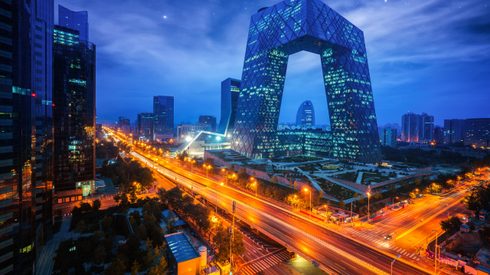“Seventy percent of the water supply to Kryvyi Rih comes from the Kakhovka Reservoir, so the situation with the city’s water supply is complicated, but it is under control,” Oleksandr Vilkul, head of the Kryvyi Rih Defence Council, said in a social media message on Tuesday.
Those districts of Kryvyi Rih that depend on water supply from the Kakhovka Reservoir will need to cut their water consumption by 30% with immediate effect, while businesses in the affected areas will be required to reduce water usage by as much as possible, Vilkul added.
The affected districts include Ternivskyi, Inhuletskyi and parts of Metalurgiynyi. Metinvest’s Northern GOK, Central GOK, Ingulets GOK and Southern GOK, as well as ArcelorMittal Kryvyi Rih (AMKR)’s steel mill, are all within these regions.
AMKR has already reduced its water consumption and suspended part of its steelmaking operations, according to a press release published later on Tuesday.
“AMKR will suspend crude and rolled steel production,” the release said. “Only the blast furnaces and cokery will remain in operation.”
How quickly the company will be able to return to normal working will become clear in the next three or four days, after an analysis of the fall in the water level at the Kakhovka Reservoir.
The company nevertheless asserted that all its orders would be met in full.
But earlier in the day, wire rod buyers in Poland said that there could be delays in wire rod shipments from AMKR. These buyers expected a limited effect on the local long steel market, though, due to poor demand, especially for wire rod.
“So far, it is difficult to say how much of an effect the water shortage in Kryvyi Rih will have on steel production,” a technologist in the Ukrainian steel industry said.
“First of all, it will be important to understand the extent to which alternative water sources will be sufficient to run the plant, and how quickly [they can] rebuild the pipeline infrastructure. This will take time, and production will probably need to be reduced during this period,” he added.
“Resumption of operations based on market sales potential will be possible after the plant adapts to the new conditions,” he said.
AMKR is one of the main steelmakers in Ukraine, with a focus on long steel production. The company has capacity to produce more than 5 million tonnes per year of pig iron and crude steel, as well as close to 5 million tpy of long steel products.
In 2022, however, due to the effects of Russia’s invasion of the country, it produced only 1.6 million tonnes of pig iron, 1.2 million tonnes of crude steel and 1.1 million tonnes of rolled steel.
In total, steel production in Ukraine dropped by 70.7% in 2022, to 6.26 million tonnes, according to the World Steel Association.
In spring this year, the country’s steel industry showed some signs of recovery, but this was now again in question. In particular, in April 2023, Ukraine produced 573,900 tonnes of steel, 103.9% more than in the corresponding month in 2022, when production totaled 281,400 tonnes, according to the Ukrainian steelmakers’ union, Ukrmetallurgprom. In March 2023, output was 527,400 tonnes, versus 242,200 tonnes in March 2022.
Metinvest announced via its official social media account that the situation at the company’s assets was under control. No further comment was available at the time of publication.
So far, no interruption to iron ore supply to Metinvest’s customers was expected, a buy-side source told Fastmarkets.
Metinvest’s iron ore operations were running at 35-45% of capacity, with logistics issues – specifically, that the country’s Black Sea ports were blocked by Russia – being the major obstacle preventing a ramping-up of production, Yuriy Ryzhenkov, chief executive officer of Metinvest Group, said in May.
Metinvest Group is one of the major iron ore suppliers to Central European integrated steel mills, with some producers reported to be sourcing as much as 90% of their raw materials from the group.
Artem Segen in Dnipro contributed to this report.






